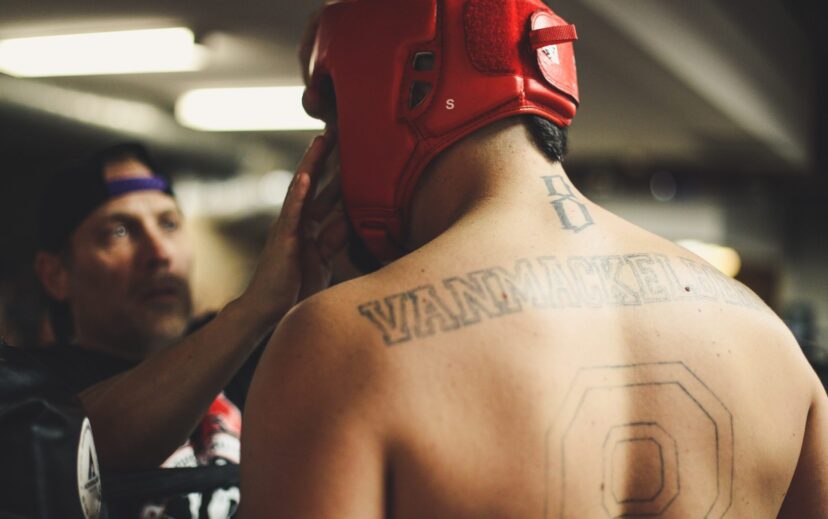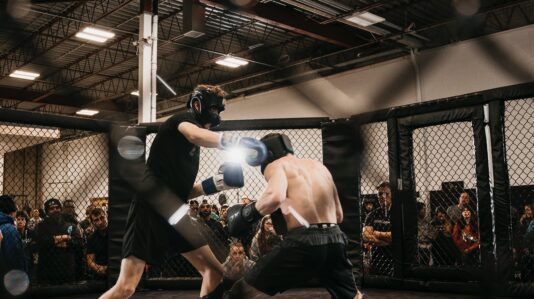As in any business, disputes may arise between employer and employees. Sports are no different. In the world of mixed martial arts, the Ultimate Fighting Championship (UFC) is regarded as a premiere league for combat sports and it has recently found itself in an ongoing legal battle.
Mark Hunt, a former professional mixed martial artist and kickboxer, has been engaged in an extended legal battle against Zuffa LLC (d/b/a UFC), its president Dana White, and fellow fighter Brock Lesnar. Hunt claims that the defendants colluded to manipulate their own drug-testing requirements, allowing certain UFC fighters to use performance-enhancing drugs.
Lesnar’s Failed Drug Tests
Mark Hunt, known for his impressive career in the UFC and his victory in the K-1 World Grand Prix in 2001, entered into a promotional and ancillary rights agreement (PARA) with the UFC in 2016. Under this agreement, Hunt was entitled to a fixed lump sum per fight and was prohibited from competing in non-UFC fights. However, Hunt’s career took a turn when he faced off against Brock Lesnar in UFC 200 in July 2016.
The UFC 200 bout between Hunt and Lesnar gained notoriety when Lesnar failed two tests for performance-enhancing drugs. Lesnar tested positive for clomiphene and hydroxy-clomiphene; anti-estrogen agents typically used to counter the side effects of steroids. Following the positive tests, the Nevada State Athletic Commission overturned Lesnar’s win, banned him from MMA for one year, and fined him $250,000.
Hunt alleges that the UFC and Dana White concealed Lesnar’s return to the UFC for UFC 200, enabling him to circumvent the Anti-Doping Policy (ADP). The ADP required returning fighters like Lesnar to undergo four months of drug testing before resuming fighting; Lesnar had not fought for about four and a half years. According to Hunt, the UFC waived this rule for Lesnar. He argues that this exemption allowed Lesnar to train with performance-enhancing drugs while keeping it concealed. Hunt believes that the UFC’s actions compromised the fairness of the fights and resulted in financial losses for him.
RICO Claims
In early 2017, Hunt filed a civil suit in the United States District Court of Nevada, asserting various claims against Zuffa LLC, Dana White, and Brock Lesnar. The court dismissed several of Hunt’s claims, including those related to RICO violations and breach of contract. RICO prohibits the use or investment of income derived from racketeering activity and provides a private right of action for individuals who suffer business or property injuries due to RICO violations. Racketeering refers to a recurring pattern of illegal activities that are done to support an organization owned or controlled by those involved in these activities.
To support a RICO claim, the plaintiff must establish conduct of an enterprise through a pattern of racketeering activity that caused injury to their business or property. The court found that Hunt’s RICO claim failed to meet the necessary standing requirements. While Hunt suffered personal and economic consequences, the court ruled that personal injuries and the economic consequences of those injuries are not compensable under RICO.
Furthermore, Hunt claims that the UFC circumvents its own anti-doping program through rampant use of drug-testing exemptions, which give the doping fighters a competitive advantage and allows the UFC to profit from televised fights featuring star competitors who would otherwise be ineligible to compete. The claims that this artificially inflated the fighting pool and depressed Hunt’s wages were considered too vague to establish financial loss.
The court also determined that Hunt failed to demonstrate proximate causation between the defendants’ actions and his damages. Additionally, Hunt’s claims of fights being canceled in retaliation for filing the lawsuit were dismissed.
Though Hunt asserted state law claims, including breach of covenant of good faith and fair dealing, fraud, breach of contract, unjust enrichment, battery, aiding and abetting, and civil conspiracy, the court found that these claims lacked proximate cause, were precluded by contractual agreements, or failed to meet the legal requirements. Ultimately, the court dismissed the claims challenged by the defendants’ motions. In March 2021, Hunt was ordered to pay $388k in attorney fees and costs.
The Appeal to the 9th Circuit Court of Appeals
Hunt appealed the district court’s decision to the 9th Circuit Court of Appeals. In September 2021, the appeals court affirmed some dismissals, such as the breach of contract claim and the unjust enrichment claim due to the existence of a written contract. However, the court reversed the dismissal of Hunt’s fraud claims, aiding-and-abetting battery claims, battery claims, and civil conspiracy claim.
Regarding Hunt’s fraud claims, the court acknowledged that he made actionable allegations of misrepresentations by Dana White, who assured Hunt that Lesnar was being tested. The Court of Appeals noted that the District Court failed to consider the possibility that Hunt would have withdrawn from the fight had he known about Lesnar’s doping, thereby avoiding reputational and other associated harms. As a result, the Court of Appeals reversed the dismissal of the fraud claims and sent the case back to the district court for further proceedings.
The court also overturned the dismissal of Hunt’s battery and aiding-and-abetting battery claims. According to the Court, consent must be given to the specific conduct or substantially similar conduct in order to dismiss the claim for the conduct. Since it remains uncertain whether Hunt consented to fighting doping competitors specifically, the Court remanded Hunt’s battery claims for further consideration. Furthermore, as the civil conspiracy claim was based on the fraud and battery claims, the Court reversed and sent that claim also back to the district court.
These reversals are significant developments in Hunt’s legal battle, offering him renewed hope in pursuing his fraud, battery, and civil conspiracy claims.
Recent Developments and Hunt’s Current Status
In February 2023, Zuffa and Dana White filed a motion for summary judgment on the surviving claims. The case has seen subsequent motions, including a motion to seal granted in April 2023. Mark Hunt has expressed that the lawsuit has taken a toll on his passion for fighting, and he believes he has been blacklisted from other promotions due to the ongoing legal battle.
The Mark Hunt v. Zuffa LLC, Dana White, and Brock Lesnar legal battle has brought the issue of doping in professional mixed martial arts to the forefront. While some of his claims have been dismissed, the recent decision by the 9th Circuit Court of Appeals has revived certain claims, providing a glimmer of hope for Hunt. As the lawsuit continues, the outcome remains uncertain, but it has already sparked conversations about fairness and integrity within the sport.
Update
After six years battling in federal court, Mark Hunt’s legal dispute with the UFC, Dana White, and Brock Lesnar has come to a conclusion. On September 26, 2023, a federal judge in Nevada delivered a knockout blow to the remaining claims in Hunt’s case against his former promoter.
U.S. District Judge Jennifer A. Dorsey ruled that Hunt failed to provide sufficient evidence to support his claims that the UFC, Dana White, and Lesnar knowingly deceived him about Lesnar’s use of performance-enhancing drugs and conspired to book the fight despite prior knowledge of Lesnar’s doping. In her 27-page opinion, Judge Dorsey explained that Hunt’s fraud allegations rested on too many assumptions and overlooked substantial contradictory evidence, making it unreasonable for a jury to find in his favor under the clear and convincing evidence standard.
Contributions to this blog by Juliette Adams





